Top 6 causes of commercial trucking accidents
The more time you spend on the road the more comfortable you will become. While this is a good thing, you never want to take your safety for granted. Just when you let your guard down you could find yourself in a serious situation.
Regardless of where you're driving, it's common to share the road with large commercial trucks. This may not be something you enjoy doing, but it's a way of life as a driver.
Unfortunately, there are times when truckers and trucking companies don't consider the well-being of everyone on the road. Subsequently, a serious accident occurs.
Here are some of the top causes of commercial truck accidents:
- Distracted driving, such as when a trucker takes his or her eyes off the road to send a text message or take a phone call
- Lack of training, which often falls back on the trucking company
- Driving under the influence of drugs, alcohol, or prescription medications (those that cause drowsiness)
- Drowsy driving, often related to a driver who does not take the required breaks
- Reckless driving, which includes but is not limited to speeding, swerving, and failure to signal when changing lanes
- Unrealistic schedules that force a trucker to drive too fast and/or not take enough breaks
Being part of a commercial truck accident is every bit as serious as it sounds. Due to the difference in vehicle size, you are at a disadvantage. As a result, there's a greater chance that you will suffer a serious injury, such as a traumatic brain injury or broken back.
If you or a loved one suffers any type of injury in a truck accident, it's important to receive medical attention and work with your doctor toward making a full recovery.
Also, don't hesitate to learn more about your legal rights. You may be able to take action against the driver and/or trucking company, all with the idea of protecting your rights and seeking compensation for injuries and damages.
Injured in an accident? Don't forget to do these things.
Every time you leave home you are at risk of getting into an accident. For example, you could be part of a motor vehicle collision or a slip-and-fall accident.
While you can't live your life in fear, accidents still happen. If you are injured in an accident it's important that you know which steps to take, as well as a timeline for what you can expect in the days and weeks to come.
Before we discuss the steps to take immediately following an accident, it's important to note that your health is more important than anything else. So, even though there are things you need to do, seek medical attention if you need to and take care of your well-being.
Here are a few other steps to immediately take:
- Collect evidence. You want to collect any evidence that shows who was responsible for the crash. Photos of your injuries, property damages and the accident location only strengthen your case.
- Write down everything. Even if it doesn't seem important at the time, still include every last detail. That could be anything from what the other person said after the accident to how many days you had to take off of work.
- Collect witness information. Just as with other evidence, you should collect contact information of any witnesses. A name and phone number is best, as you may need to get in touch with these people as your case moves forward.
- Learn more about your insurance coverage. If you were involved in a car accident, you need to review your policy, contact your agent and file your claim.
Just because you are part of an accident does not mean you can make a personal injury claim. Some minor accidents only result in property damage, thankfully. However, if you sustained injuries or injuries develop in the days following the accident, you need to protect your legal rights at all times.
As you focus on receiving the right type of treatment, turn your attention to what happened during the accident and where you fit into the equation. This will help you better understand what to do next and how to hold the negligent party responsible for his or her actions.
Medical malpractice and pain and suffering compensation
When you go under the knife, the last thing you want is for something to go wrong. Fortunately, the consequences doctors face for such a lapse are often severe, so the precautions they take verge on the extreme. Still, medical malpractice happens, and should you fall victim to it, the effects could be lasting and painful.
While the medical expenses that stem from an occurrence of malpractice can be easily quantifiable, the lifetime of pain and suffering are often not. In the state of New York, you could be eligible for what are aptly called "pain and suffering" damages as a form of reimbursement.
What exactly are pain and suffering damages?
Pain and suffering damages mainly account for two factors:
- Emotional distress, which can include anxiety, depression, insomnia or other mental symptoms.
- Lasting physical pain stemming from the incident.
These are sometimes called "non-economic" damages, and are meant to compensate you in the event that your life has been irreparably changed due to medical malpractice. New York is one of the few states that do not limit these types of damages. Hypothetically a jury could rule that any amount is reasonable.
How does a judge or jury calculate pain and suffering damages?
Because they aim to compensate for things that are difficult to put a price on, pain and suffering damages can be tricky to calculate. Typically, a judge or jury will weigh a few aspects of the case in order to arrive at a figure:
- How will the injury affect the afflicted in the long term?
- What will the effects be for the party at home?
- Is the party facing an altered work life?
These, among other questions, are likely to enter a judge's or jury's thought process prior to the awarding of damages. Because medical malpractice cases are inherently complicated - particularly when pain and suffering damages enter the fray - it can be beneficial to seek legal counsel. The aftermath of a medical malpractice accident is often a stressful, painful time, and the guidance of an experienced attorney may prove instrumental to ultimately obtaining the compensation you deserve.

